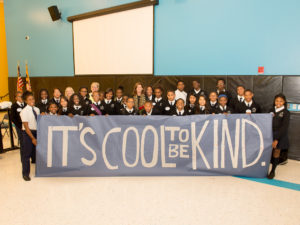The Criminalization of Bullying
Bullying should be taken seriously -- by teachers, administrators, parents and, yes, fellow students. I'm doubtful, though, that criminal prosecution is the best way to punish or prevent it.My heart aches for the parents of Phoebe Prince, the 15-year-old Massachusetts high school student who committed suicide in January after being relentlessly bullied at school and online.
My heart aches for her younger sister, who found Phoebe hanging in the stairwell of the family’s home. A scarf the sister had bought her as a Christmas gift was knotted around Phoebe’s neck.
My heart aches for Phoebe, who arrived from Ireland last fall only to endure months of abuse from classmates at South Hadley High School, the apparent result of Phoebe’s brief fling with a popular football player.
My heart aches, but I also question the wisdom of the criminal charges just filed against nine of Phoebe’s former classmates. Bullying should be taken seriously — by teachers, administrators, parents and, yes, fellow students. I’m doubtful, though, that criminal prosecution is the best way to punish or prevent it.
Nine students were charged, including three girls not named because they are juveniles. Two boys, 17 and 18, were charged with statutory rape; the age of consent in Massachusetts is 16.
One of the juveniles is charged with “assault by means of a dangerous weapon, to wit: a bottle, can or similar beverage container” — apparently throwing a soda can at Phoebe as she walked home from school the day she died. The other charges include stalking, harassment, violation of civil rights and, my favorite, disturbance of a school assembly.
If this sounds derisive, it’s not because I doubt the seriousness of the conduct but because the specific counts underscore how clumsy a tool the criminal law is to deal with such behavior. Charging nine students is casting an awfully wide net.
The statutory rape charges are especially troubling, assuming the sex was consensual. Teenage boys engage in this conduct with teenage girls every day without being prosecuted. That activity, however unwise, does not suddenly acquire criminal overtones because the girl involved killed herself.
District Attorney Elizabeth Scheibel, announcing the charges, described “a nearly three-month campaign of verbally abusive, assaultive behavior and threats of physical harm … relentless activity directed toward Phoebe, designed to humiliate her and to make it impossible for her to remain at school.” The bullying, Scheibel said, “far exceeded the limits of normal teenage relationship-related quarrels.”
How does she know — and do we routinely want prosecutors making these calls? Slate’s Emily Bazelon reported that among South Hadley students, “The prevailing sentiment was that, yes, Phoebe had been mistreated but not in some unprecedented way. ‘A lot of it was normal girl drama,’ one girl told me. ‘If you want to label it bullying, then I’ve bullied girls and girls have bullied me. … It was one of the worst things I’ve heard of some girls doing to another girl. But it wouldn’t have hurt most people that much.’”
The criminalization of bullying risks a slippery slope down the age range. In Waltham, Mass., an 11-year-old was charged with two counts of assault and battery with a dangerous weapon — using her foot and a locker door — and one count of assault with a dangerous weapon using scissors.
The kids who bullied Phoebe Prince should be punished — suspended, expelled, required to attend counseling. Still, to be a teenager is to do stupid things. The teenage brain is a work in progress. The prefrontal cortex, the part linked to impulse control, judgment and decision-making, is still maturing. This is why all teenagers need adult supervision, from parents and teachers.
And it is why not enough responsibility has been placed on those whose brains were fully developed: the school staff who apparently knew of the harassment and did not do enough to stop it. As Scheibel reported, “The investigation has revealed that certain faculty, staff and administrators of the high school also were alerted to the harassment of Phoebe Prince before her death.”
The school says it did what it could when it knew. To its credit, it had brought in an expert on bullying even before Phoebe’s problems came to light. Still, the consultant told USA Today that when she returned to the school after Phoebe’s death, “I was told there was no visible sign these kids had faced consequences for what they’d done.”
As a legal matter, this is not a crime. In a broader sense, it is nothing short of criminal.
Ruth Marcus’ e-mail address is marcusr(at symbol)washpost.com.
© 2010, Washington Post Writers Group
Your support matters…Independent journalism is under threat and overshadowed by heavily funded mainstream media.
You can help level the playing field. Become a member.
Your tax-deductible contribution keeps us digging beneath the headlines to give you thought-provoking, investigative reporting and analysis that unearths what's really happening- without compromise.
Give today to support our courageous, independent journalists.





You need to be a supporter to comment.
There are currently no responses to this article.
Be the first to respond.